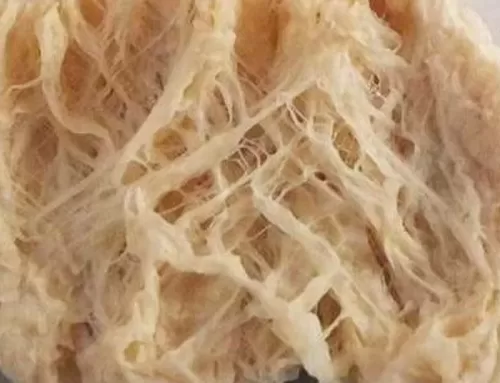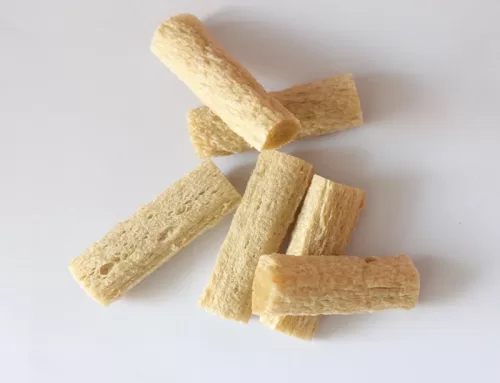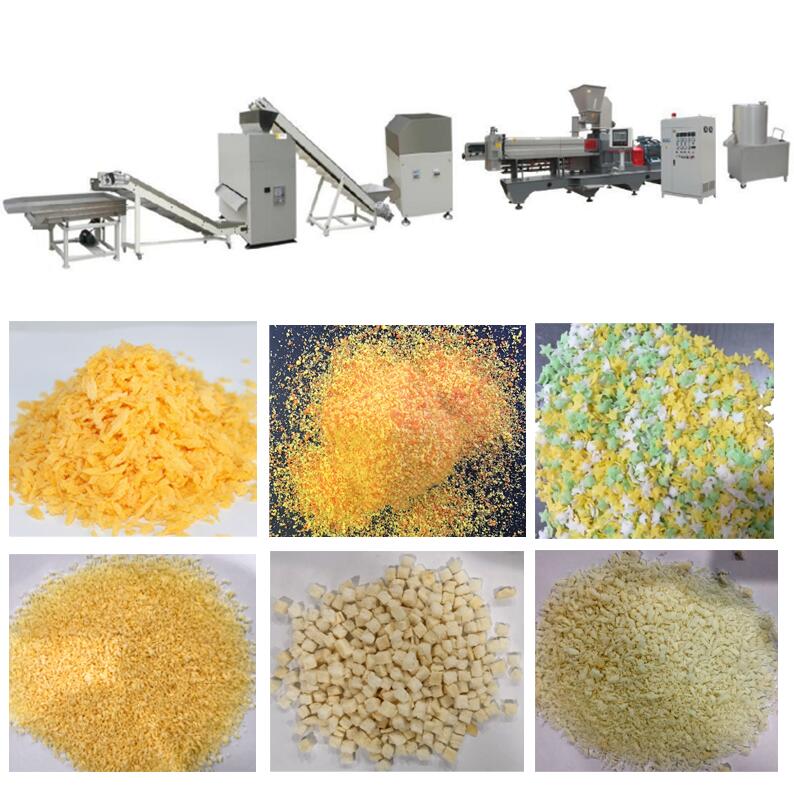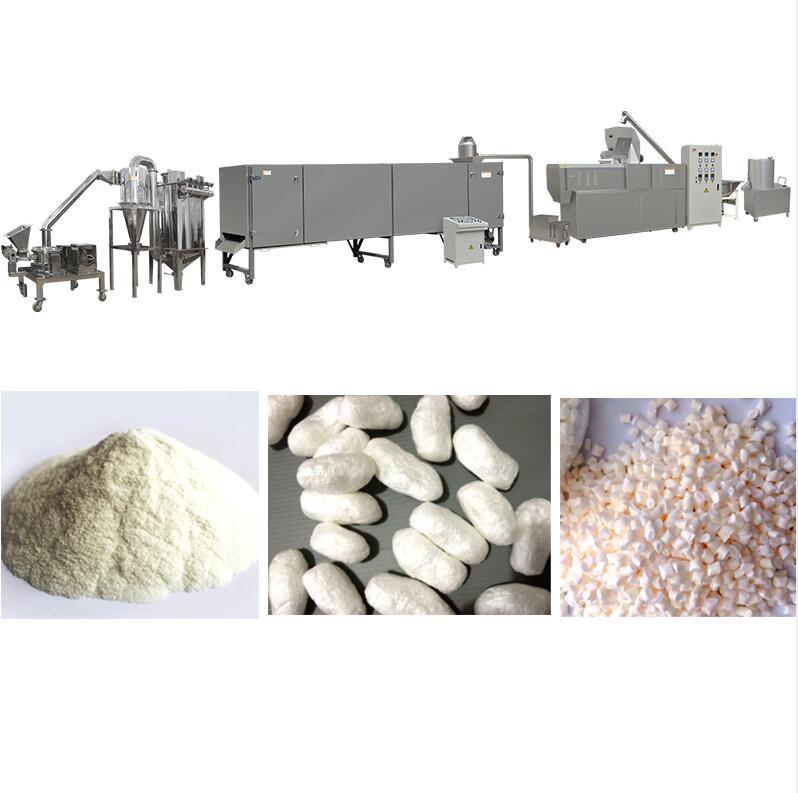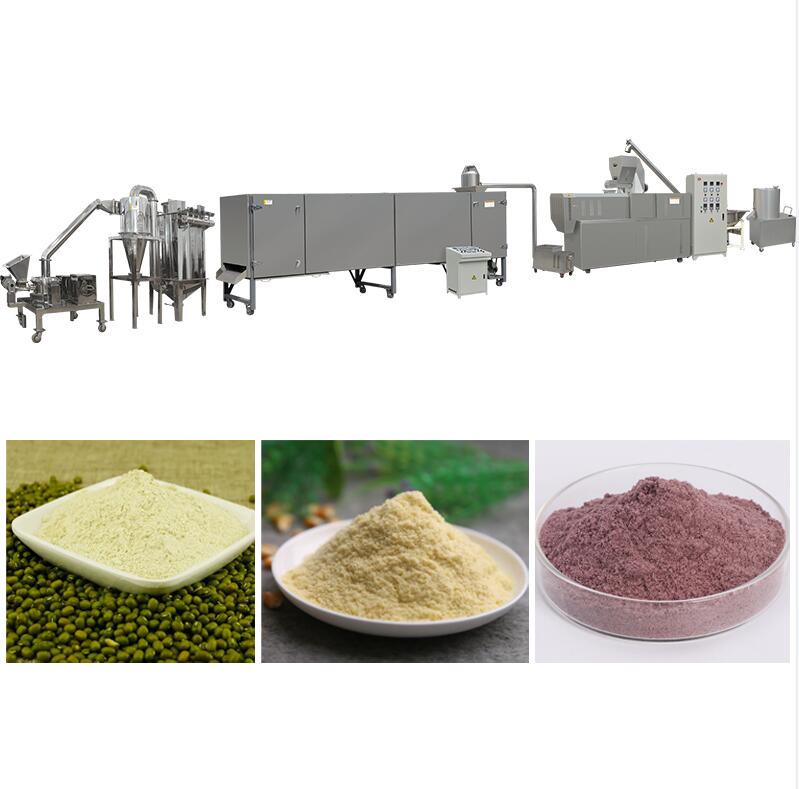250-300 kg/h Dry Fibrous Textured Soya Protein Making Machine
I.Introduction of Dry Fibrous Textured Soya Protein
Vegetable fiber textured protein is a kind of protein with muscle fiber structure, which has good chewiness and rich nutritions, usually used as plant-based alternatives to meat. It is made by the specific twin screw extruder through a longer term extrusion process (steaming, kneading, shearing, etc).
Different from soybean nuggets/chunks, fiber structured protein raw materials do not use soybean meal, but soybean protein isolate or gluten flour that has higher protein content of >90% and >80% respectively.
Different from high-moistured plant fibrous structural protein, which has an extruded moisture up to 50%-70%, the extruded moisture of dry soybean fibrous structural protein is low, less than 50%. Soybean protein isolate, added with gluten powder, is mixed, pre conditioned, steamed, and high-temperature sterilized in an EXTENDED twin screw soya puff extruder. Under the high temperature and high pressure in the extrusion chamber, the molecular composition of soybean protein isolate is changed to form a directional and continuous fibrous structure. Then it is solidified by instant puffing to form a soy fiber protein with a chewy texture similar to meat. Then dry it through the dryer. Flexible seasoning process can be carried out according to people’s taste preference.
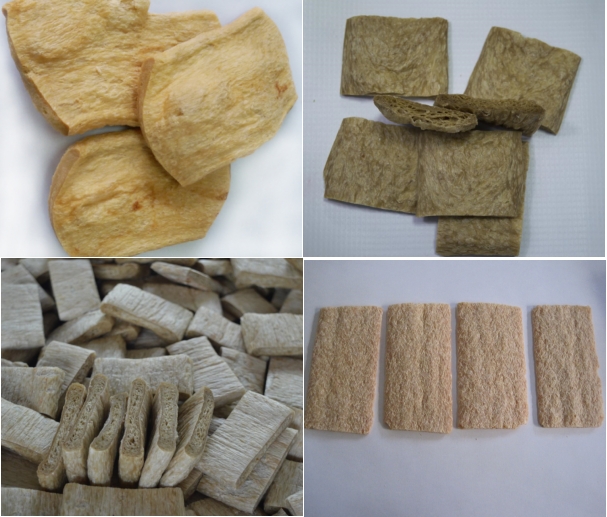
II.Parameters of 250-300 kg/h Dry Fibrous Textured Soya Protein Making Machine
| Capacity | 250-300 kg/h |
| Energy/Power | -Electric heating:
Installed power 304 kw -Other heating option: Natural gas/Diesel by burner or steam boiler |
| Installed Area | Around 400-500 square meters |
| Material | Defatted soya flour, mixed with gluten flour |
III.Features
- Finished food quality ensured: Optimal extrusion solution, premium equipment design, and equipment processing ensure high-level and stable production.
- High output: High designed capacity; minimal material loss;
- Less energy: High mechanical coordination, low wear; optimized heating, thermal transfer& insulation details, low heat loss
- Low production cost: Flow production, precise control of each process
- Simple and low cost maintenance: Modular structure, easy operation. Lifetime after-sales service
- Material: High-quality food-safe materials for all food contact part
- Failure rate: Nearly zero failure as long as preventive maintenance
IV.The General Flow Chart
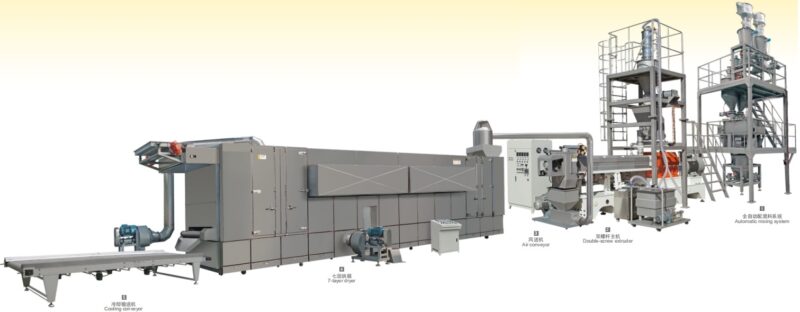
- Step 1: Mixing
- Step 2: Extruding& cutting
- Step 3: Drying (to reduce the water content to 8%)
- Step 4: Seasoning(optional, it’s to produce flavoured textured veggie protein)
- Step 5: Cooling before packing
- Step 6: Packing
V.Components of Dry Fibrous Textured Soya Protein Making Machine
- Flour mixer
- Lengthened twin screw tvp extruder
- Chiller
- Vibration spreader
- Dryer
- Seasoning machine(optional, it’s to produce flavoured textured veggie protein)
- Cooling machine
- Automatic packing machine
- Controlling system (PLC/or instrument control options)
- Complete conveyors
- Burner/Steam boiler (Optional)
VI. More
- Flexibility: The quality of wheat fibrous structure depends on the formulation and extrusion parameters. The soya protein/puff making machine parameters include temperature, moisture, feed rate, barrel temperature, shear, die pressure, die temperature and other mechanical properties. By adjusting the ratio of raw materials and setting extrusion parameters, fibrous structural protein with different elasticity and strengths can be produced, such as thick, thin, soft fiber, hard fiber and smooth fibrous texture structures.
- Shapes: According to the different extrusion dies and auxiliary equipment, it can produce bars, blocks, slices, strips, granules, puddings, crumbs and other shapes.
- Multipurpose: The lengthened twin screw extrusion process is suitable for the production of various plant textured proteins. In addition to dry fibrous plant protein, it can also process high-moisture fibrous protein and non-fibrous soybean chunks/nuggets.
- Applicable plant protein comes from a wide range of sources, such as wheat protein, soybean protein, soybean protein isolate, peanut protein, sunflower protein, special protein, etc.

